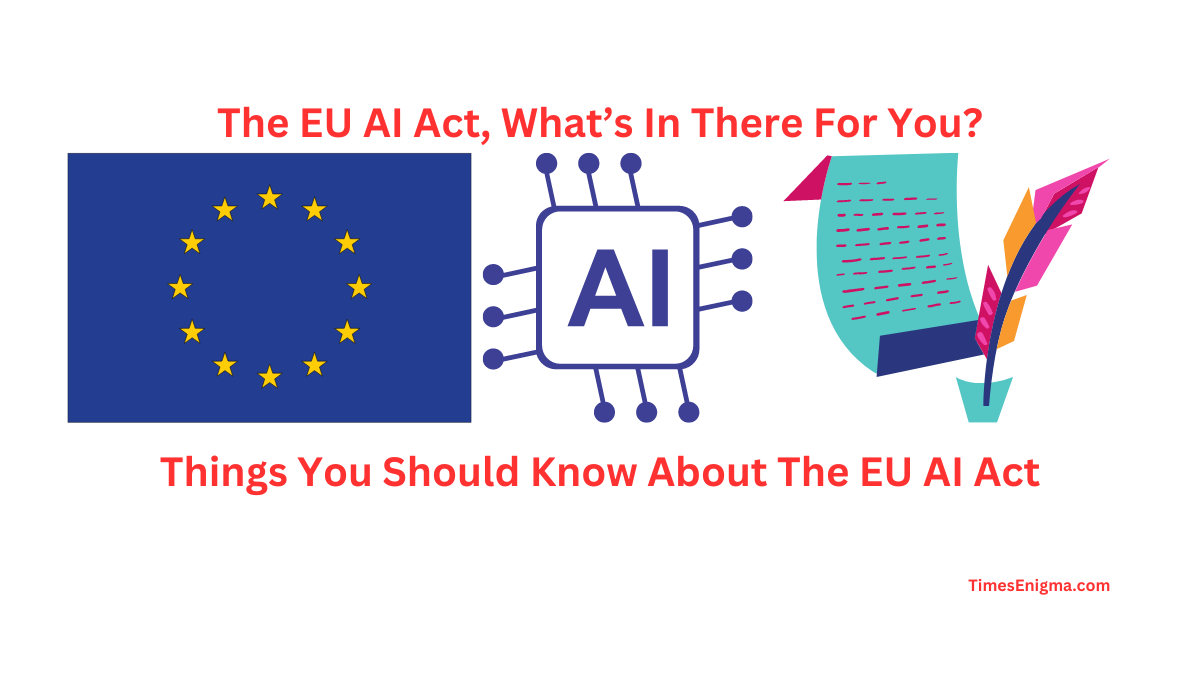European Parliament and negotiators reached a landmark deal on the Artificial Intelligence (AI) regulation (Act), EU AI Act. With mixed reactions, here is what you need to know that will affect you personally.
Table of Contents
The EU’s Landmark AI Deal
EU will become the first supranational authority to regulate AI. Following a day debate on Dec 8 and a 15-hour negotiation, the EU reached a deal on the AI Act. Following the successful deal, Thierry Breton announced on X (Formerly Twitter) that the EU becomes the first continent with a clear set of rules for AI. She also boasted that the AI Act is much more than a rulebook. It’s a launchpad for EU startups and researchers to lead the global AI race.
This landmark AI deal will have significant effects on ChatGPT, Bard, Gemini, Grok, etc. These companies and AI tools must follow the regulations if they are to operate in the EU. Besides this EU landmark deal, 18 other nations have come together to regulate AI for secure development, as reported by Times Enigma. The new EU AI Act is yet to pass in the EU parliament to become an act and operational.
The debate and negotiation marathon was about too much regulation that will hinder innovation and free flow to AI, which many believe is a very dangerous path.
The EU AI Act, What Does This Mean For You?
The mixed reactions and details are provided in the later sections of this report. But before that, jumping the gun, what’s your skin in the EU AI Act? Obviously, the regulation will be confined only to EU nations. But just like the privacy laws and other internet-related regulations it tends to have an effect beyond the jurisdiction.
All AI tools must disclose their content-scrapping and usage policy for training
With the new EU AI Act, AI tools and companies must share the details of training content summaries. This means you will have an idea of how the AI model was trained and how it is affecting the replies.
AI models must evaluate risks and address the concerns
AI models with significant impact and risks, such as ChatGPT and Bard must evaluate the risks and impacts and should address them before deploying to users.
Must perform system resilience
The AI models must study and run system resilience tests, including adversarial tests, and report the findings to the EU to ensure cybersecurity.
EU AI Act: AI Models must disclose energy efficiency reports
The landmark EU AI Act aims to check if the AI models are energy efficient and essentially aiming at sustainable AI development in the future. The draft AI model includes necessary disclosure of the energy efficiency of the AI models.
Governments can use real-time biometric surveillance only in specific cases
Governments can only use real-time biometric surveillance in specific cases like certain crimes or severe threats in public spaces. This will prevent misuse of the powerful AI models for real-time biometric surveillance that may lead to misuse of the capability.
No scrapping of biometric data from internet or CCTV footage
Scrapping of data from the internet, including social media or CCTV cameras, to be used for training and implementation of biometric use. This will ensure the privacy of social media users where their facial data is publicly available. This also includes their beliefs and orientations.
Your right to complain and get an explanation
You will have the right to complain and get an explanation. However, at this stage, it is not clear to whom to complain, will there be a nodal officer in companies handling these complaints? Time will tell.
EU AI Act: Fines for policy violations
Companies will be fined for violations ranging from 7.5 million euros ($8.1 million) or 1.5% of turnover up to 35 million euros ($37.7 million) or 7% of global turnover, depending on the infringement and size of the company.
EU AI Act: Mixed reactions:
This draft Act will help prevent controversy like Google Gemini just after launch. People on the regulations and privacy side expressed caution that AI was to be used for unlimited, unmonitored use for biometric surveillance.
Some expressed for hindering development due to regulation, and the EU will be a loser in the AI race. Check out the full reaction on Reuters.

3 Replies to “EU AI Act, EU’s New Landmark AI Act: What Does This Mean For You?”